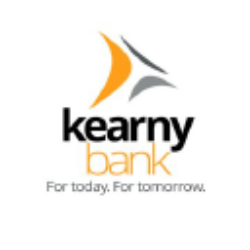
FMP

Kearny Financial Corp.
KRNY
NASDAQ
Kearny Financial Corp. operates as the holding company for Kearny Bank that provides various banking products and services in the United States. The company offers various deposit products, including interest-bearing and non-interest-bearing checking accounts, money market deposit accounts, savings accounts, and certificates of deposit accounts. It also provides various loans, such as multi-family and nonresidential real estate mortgage loans, commercial term loans and lines of credit, one- to four-family first mortgage loans, and home equity loans and lines of credit; loans to individuals for the construction or renovation of one- to four-family residences, or for the construction of commercial real estate or multi-family residential buildings; overdraft lines of credit; and personal loans. In addition, the company engages in investment activities. As of August 18, 2021, it operated a total of 48 branch offices located throughout northern and central New Jersey and Brooklyn and Staten Island, New York. The company was founded in 1884 and is headquartered in Fairfield, New Jersey.
7.16 USD
0.08 (1.12%)

EBIT (Operating profit)(Operating income)(Operating earning) = GROSS MARGIN (REVENUE - COGS) - OPERATING EXPENSES (R&D, RENT) EBIT = (1*) (2*) -> operating process (leverage -> interest -> EBT -> tax -> net Income) EBITDA = GROSS MARGIN (REVENUE - COGS) - OPERATING EXPENSES (R&D, RENT) + Depreciation + amortization EBITA = (1*) (2*) (3*) (4*) company's CURRENT operating profitability (i.e., how much profit it makes with its present assets and its operations on the products it produces and sells, as well as providing a proxy for cash flow) -> performance of a company (1*) discounting the effects of interest payments from different forms of financing (by ignoring interest payments), (2*) political jurisdictions (by ignoring tax), collections of assets (by ignoring depreciation of assets), and different takeover histories (by ignoring amortization often stemming from goodwill) (3*) collections of assets (by ignoring depreciation of assets) (4*) different takeover histories (by ignoring amortization often stemming from goodwill)